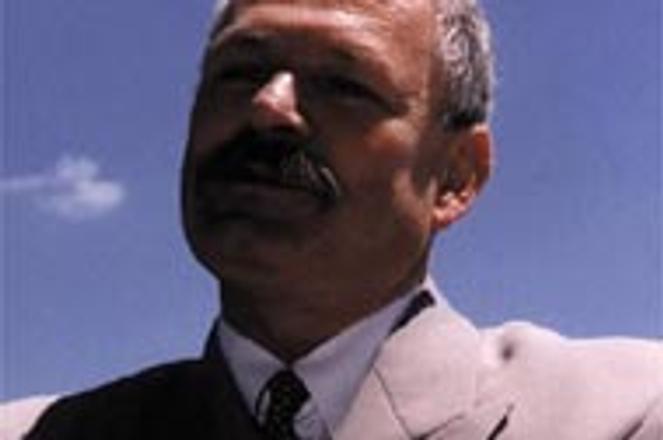Parliamentary speaker Ivan Gašparovič inherits 3 new powers.Peter Brenkus
Parliamentary deputies unanimously approved a constitutional amendment on July 14, transferring key presidential powers to the speaker of parliament and moving Slovakia back from the brink of a constitutional crisis.
The bill hands the speaker of parliament, a position currently held by Ivan Gaśparovič, three of the four remaining presidential powers not assumed by Premier Vladimír Mečiar after former President Michal Kováč's term in office ended on March 2. The presidential post has remained vacant since Kováč's departure.
The most important of the three transferred powers is that allowing Gašparovič to receive the resignation of an outgoing government. Political analysts had feared that if this power remained in limbo until after September's general elections, Slovakia would have wound up with a constitutional standoff between a new parliament and a non-removable government.
"I see the amendment as a solution to the situation threatening September's parliamentary election, and thanks to it a constitutional crisis has been averted," said Milan Čič, chairman of the Slovak Constitutional Court. Čič added that the amendment guaranteed the stability of the system of constitutional authority and its operation after September's election.
Expressions of relief at the closure of one of the country's most intractable political struggles, however, was drowned by post-session political positioning as parties scurried to secure credit for the bill's passage.
The bill was proposed by Meciar's ruling Movement for a Democratic Slovakia (HZDS) but was identical to a proposal submitted earlier in the session by the Slovak National Party (SNS).
But members of the largest opposition party, the Slovak Democratic Coalition (SDK), claimed that the bill's passage had been their victory, citing a petition the party had sponsored months earlier urging the transferral of the remaining presidential powers to the speaker of parliament. "Citizens, by signing the petition and through their involvement, put appropriate pressure [on the HZDS] which resulted in passing the bill," wrote SDK leader Mikuláš Dzurinda in a press release..
The HZDS had submitted its proposal in two variants: The first was identical to the SNS proposal and entrusted the powers, including the right to appoint and remove cabinet members, to the speaker of the parliament; the second HZDS variant was unacceptable for most opposition parties because it introduced some elements of Germany's chancellor system, sending all the remaining presidential powers directly to the prime minister.
After most of the coalition members refused to vote for the SNS proposal, all 131 present members agreed on the HZDS' first variant. "It was a pre-election trick," said Ľubomír Fogaš, parliamentarian for the former communist Slovak Democratic Left (SDĽ) party. "It was aimed at influencing voters and telling them that it was the HZDS who found this solution. [But] it isn't true - it was the SDĽ and the SNS who found it."
When asked whether he thought HZDS had sought political prestige with its actions during the session, Jozef Prokeš, an SNS parliamentarian, was giving away no secrets. "Let the people make their own judgment," he said.


